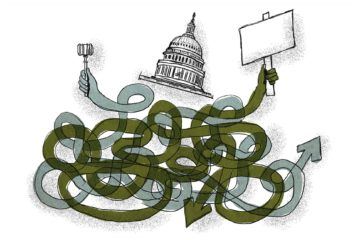 Kim Phillips-Fein in The New Republic:
Kim Phillips-Fein in The New Republic:
In 1950, the historian Henry Steele Commager wrote about the Tennessee Valley Authority, the New Deal agency that brought electricity and economic development to seven states in the rural South. It was, he said, no less than “the greatest peacetime achievement of twentieth-century America,” a triumphant alliance of “science and politics.” Speaking with an absolute confidence that is hard to imagine in the present day, Commager asserted that the history of the TVA demonstrated beyond a doubt that “public intelligence can operate most effectively through government and that government can be more efficient than business.”
What accounts for the retreat of postwar liberalism? Why did Commager’s enthusiastic praise of government initiative decline into the “reinventing government” of the Clinton years? Much of the scholarship on the rightward shift of the late twentieth century has focused on the growing power of the conservative mobilization. The radicalism of the New Left, the civil rights and Black power movements, the gay and lesbian rights movement, and feminism all alienated the older white working class, driving it away from the Democratic Party and into Reagan’s waiting arms. Meanwhile, the business antagonists to organized labor and the expanded federal government had been patiently organizing, awaiting their moment. They were joined by suburban conservatives in California and in the New South, who sought ways to preserve their property and their affluence. The activist foot soldiers of the right joined with the intellectual and think-tank leaders, who in turn worked with the Chamber of Commerce and a new generation of conservative politicians to win political power during the troubled 1970s, when the political economy that had underwritten liberal idealism foundered and economic growth slowed.
In this earlier telling, the fragile entities of government and labor could not help but give way before the relentless onslaught of the right. Newer work does not let liberalism off the hook so easily. The decline of the liberal order, historian Paul Sabin argues in his new book, Public Citizens, reflected a serious intellectual and moral critique, focused on the capture of government agencies by private corporations, the ossification of labor and the state, and the complicity of the Democratic Party in channeling money and power to the business class. What is surprising is that these political ideas and arguments emerged not in conservative circles, but among liberals themselves, and they were popularized by a new kind of political organization that was developed over the course of the 1970s: the public-interest research group and law firm, which sought to advance political change through lawsuits and consumer representation, not mass mobilization.
More here.
